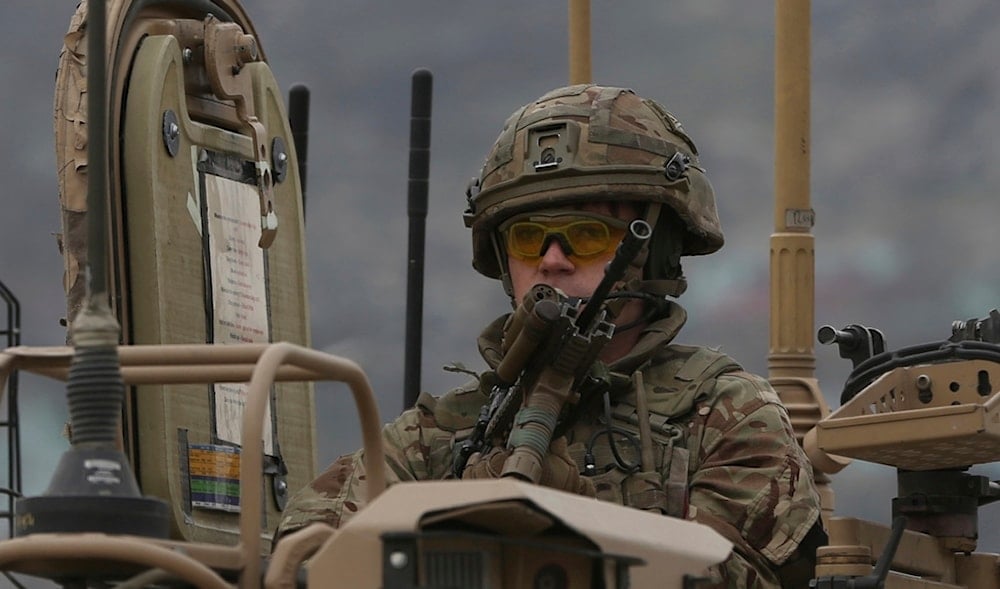UK leading NATO's eastern flank drills with 2,600 troops, 730 vehicles
The United Kingdom deploys thousands of troops and hundreds of military vehicles for military exercises on NATO's eastern flank.
-

A British soldier with NATO-led Resolute Support Mission forces arrives at the site of an attack in Kabul, Afghanistan, on March 25, 2020. (AP)
More than 2,600 UK soldiers and 730 military vehicles will be deployed for exercises on NATO's eastern flank, the British Defense Ministry said on Saturday.
According to the Ministry of Defense, the UK is making the largest contribution to military drills.
It will also be "leading from the frontlines," where the 1st Division will oversee all of NATO's land forces during Exercise Steadfast Dart 25, which is set to take place in Bulgaria and Romania. The exercise will focus on practicing the deployment of the new Allied Reaction Force, designed to "rapidly reinforce" NATO's eastern flank in case of a crisis.
In November, NATO Secretary General Mark Rutte and Polish President Andrzej Duda attended the opening of a new US-NATO missile defense base, Aegis Ashore, in the northern Polish city of Redzikowo.
Just 102 miles from the Russian border, this base represents a significant investment in NATO's missile defense system, designed to intercept and neutralize threats from the east.
Rutte praised Poland's commitment to defense spending during a press event in Warsaw, noting that Poland's military budget now approaches 4.7% of its GDP—the highest of any NATO ally.
This commitment is said to be in line with Poland's broader "East Shield" deterrence strategy to reinforce its borders with Russia and Belarus in response to escalating regional tensions.
Regional Implications and Russia's Response
Poland's intensified focus on military preparedness comes as NATO countries increase troop deployments, military training, and hardware positioning on the alliance's eastern flank.
Following the start of the Ukraine war, NATO members have heightened their defensive capabilities, placing additional ships, planes, helicopters, and troops in the region and putting forces on high alert.
Russia has repeatedly voiced concerns over NATO's expansion near its borders, describing the buildup as a threat to its security.
The Russian Foreign Ministry has stated its readiness to discuss de-escalation with NATO, but only under terms that respect mutual interests and avoid further militarization of Europe.
Moscow maintains that a balanced approach is essential to prevent increased regional instability.

 2 Min Read
2 Min Read









